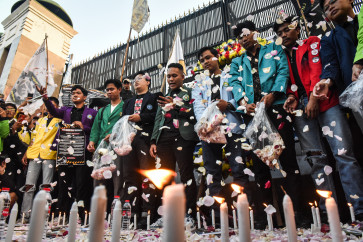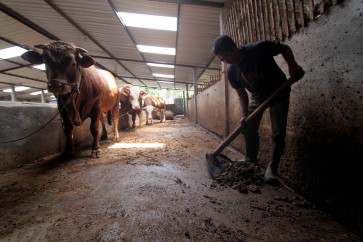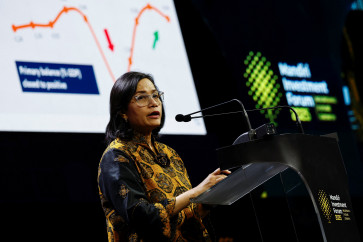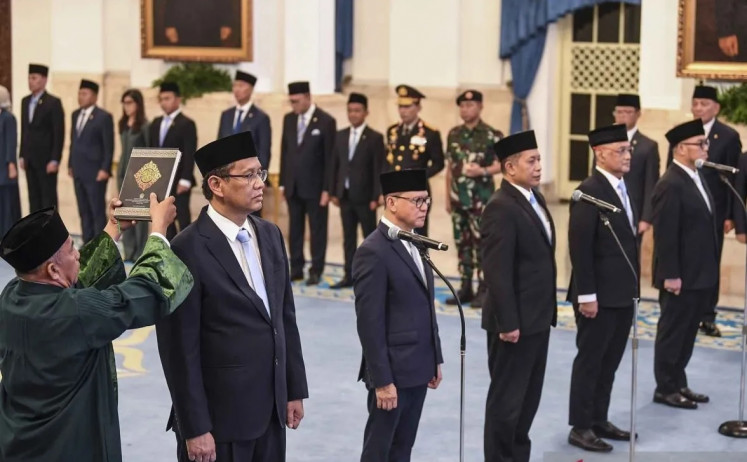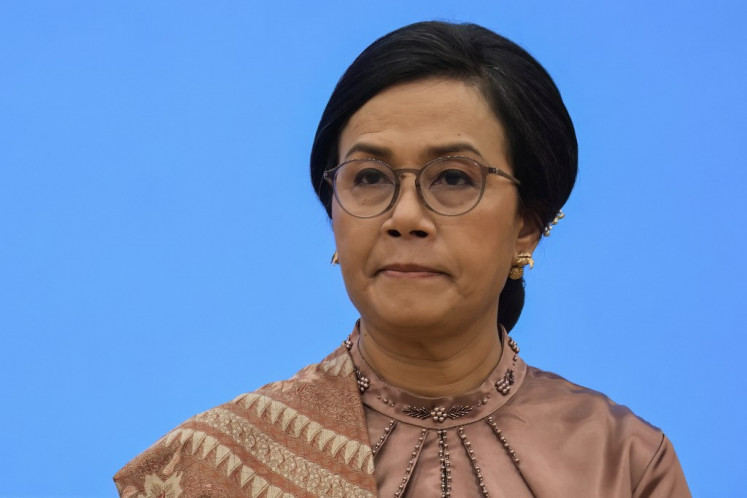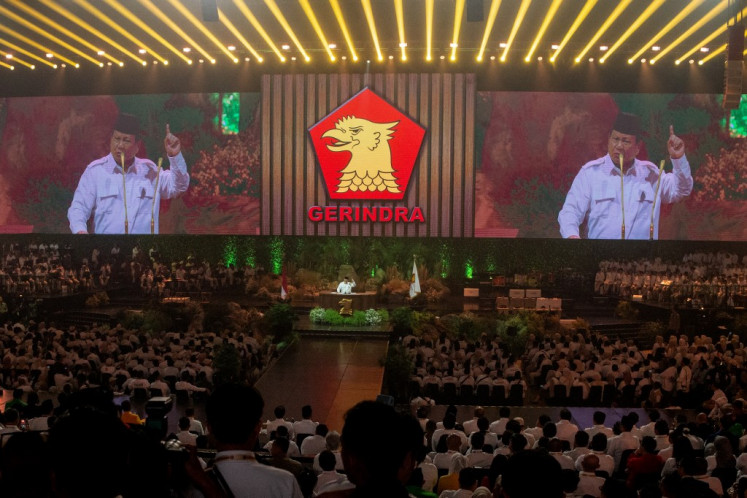Popular Reads
Top Results
Can't find what you're looking for?
View all search resultsPopular Reads
Top Results
Can't find what you're looking for?
View all search resultsCOP-15 for dummies
All eyes are fixed on Copenhagen as the much-anticipated event, the 15th session of the United Nations Climate Change Conference (COP-15), will be held from Dec
Change text size
Gift Premium Articles
to Anyone
A
ll eyes are fixed on Copenhagen as the much-anticipated event, the 15th session of the United Nations Climate Change Conference (COP-15), will be held from Dec. 7 to Dec. 18.
The media started paying close attention to climate change issues months before the event had even begun. However, for many people, especially those who are not familiar with environmental issues, the coverage may seem too technical.
Rully Prayoga, an East Asia Climate Change Campaigner from Oxfam International, has lent his hands (and brain) to decipher all the jargon related to climate change issues.
It all began with the industrial revolution in the 18th century when many developed yet rich countries (in Europe and North America) started to replace manual labor with machine-based manufacturing. The rapid industrial development drove people to use more machines, which increased the release of carbon dioxide, or carbon emissions, into the atmosphere.
"The Earth actually has a carrying capacity to recover air quality, but due to the massive *attack' of carbon emissions, it does not have enough time to recover it," Rully told The Jakarta Post recently.
Over the past decades, more and more carbon has become trapped in the atmosphere and that's what is known as the greenhouse effect, which leads to global warming.
Global warming itself leads to climate change, which negatively impacts people's lives, causing storms, flood, drought, sickness, shifting seasons, desertification and rising sea levels.
Rully highlighted that climate change was different from weather change.
"Many people misunderstand these terms. Weather change is seen weekly, while climate change develops over 20 to 30 years."
He noted that climate change has occurred for many years ago.
"Why does it really matter now? Because the negative impact of climate change is much greater than years ago and it is caused by an increase in population."
So, the main issue in the upcoming climate talks in Copenhagen is the commitment of developed countries to reduce carbon emissions as they are the biggest contributors, Rully said.
The other issue to be discussed is financial support to help people in developing and poor countries adapt to the changing climate.
"The important thing to be highlighted is that climate change is not only about environmental issues. It also includes other aspects such as social, economic and security issues," he said.
"Developing countries, least responsible for the changing climate, are hit first and hardest. They are particularly vulnerable because of widespread poverty and a lack of resources or social protection systems to help people recover from climate shocks or sustain their livelihoods," Rully added.
Richer countries are hoped to be able to lend their hands to assist them.
Rully tried to describe the issues of global warming and climate change using a plane with three different seat classes as an analogy.
In the plane, developed countries have executive class seats with complete service like drinks, food, and proper safety devices; developing countries receive poor safety devices with no food or drinks.
"Poor countries get the worst service in the plane, as they, for instance, are not equipped with proper safety devices," he said.
"If the plane crashed, rich countries would be able to survive, followed by developing countries that struggled hard to land on earth, while the poor ones would die instantly."
Building resilience and reducing people's vulnerability is crucial to protecting people against the worsening impacts of climate change, while social protection systems can help people recover from shocks.
Rully cited four major hopes for the Copenhagen climate talks: safety, fairness, ambition and equality.
"First, we hope that leaders settle an agreement to keep the world safe, taking some efforts to keep global temperature rises below 2 degrees Celsius."
It is hoped that developed countries will also be fair about assisting developing countries to sustain their livelihoods, as well as about curbing emissions, while equality means that climate change is a global issue as it affects every human being.
The public, however, also plays big role in this issue by starting to take some real actions to save the environment. How do we help to save the earth? "Instead of planting trees, it'd be better if you started to reduce the use of plastic bags because it takes a lot of energy to produce plastic bags," Rully suggested.
"You can also save electricity. Use one large light bulb instead of a few small ones. A large watt light bulb uses less energy and gives off more light than two small watt bulbs."
The most important thing is help poor people around you do the same thing.
So, leave the climate talks to the leaders and start to change your lifestyle to save the world.
Killer Facts
Oxfam International shared some scary facts about climate change.
- If global temperatures rise more than 2 degrees Celsius over pre-industrial levels, it is estimated that two billion people will be affected by water shortages and most of southern Africa will have to cope with year-round droughts. Global agriculture will be undermined and hunger and malnutrition is likely to kill up to three million more people every year.
- Climate change will be among the most important drivers of disease this century. Diseases that have long been geographically bound are migrating, bringing them to new populations with no knowledge of or immunities to them. According to the WHO, 300,000 people die every year because of climate change.
- According to the Global Humanitarian Forum, 500 million people live at extreme risk to climate change impacts. Climate change leads to the death of 300,000 people every year, displaces over 20 million, and causes over $100 billion dollars in damages a year.
- The number of people at risk of hunger is projected to increase by 50 million by 2050 as a result of climate change. About three-quarters of that number will be in Africa.
- Despite accounting for only 20 percent of the world's population, developed countries are responsible for over 60 percent of industrial emissions since 1990.
- The largest 15 countries (including the US) are responsible for about 80 percent of global emissions. Poorer countries will suffer between 75 and 80 percent of the effects of climate change, which was caused by developed countries.
- Some 26 million people have been forced to leave their homes as a direct result of climate change and a million more are added to this figure every year due to climate-related circumstances. Communities on islands of Vanuatu, Tuvalu and the Gulf of Bengal have been forced to flee from the rising sea levels.
- Toward 2050, around 150 million people around the world may be forced to leave home as a result of climate change. Some 75 million of these climate refugees will come from the Asia Pacific region, and this number could rise to 150 million by 2100.
- One third of China's carbon dioxide emission comes from export of goods to rich countries.


